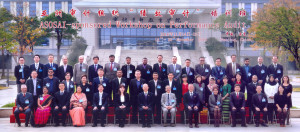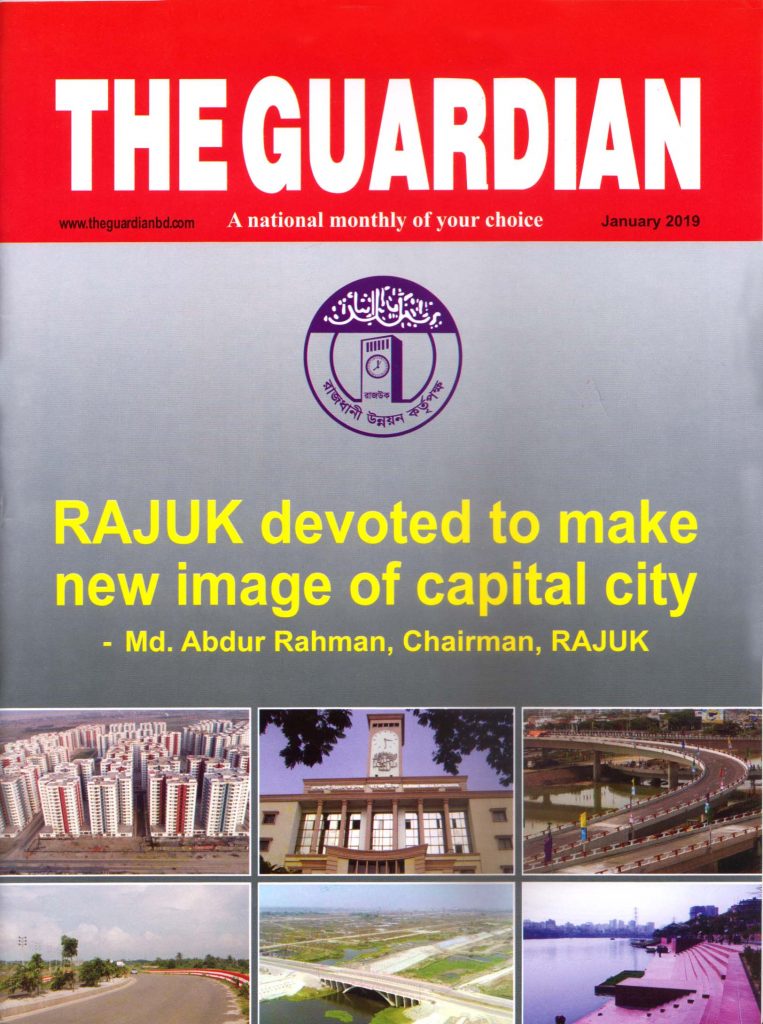FIMA is the primary institute in Bangladesh that specializes in developing capacity in public financial management and governance of the public sector. But during its inception, the role of this institute was to some extent in comparison to constricted to what it is at present.
In 1962 the Audit and Accounts Training Center was established in Dhaka to train non-gazetted employees of different audit offices in the the East Pakistan. After liberation the institute started its journey in 1974 as the Audit and Accounts Training Academy (AATA). The main functions of AATA were to enhance the competency of the officers and staff of the office of the Comptroller and Auditor General of Bangladesh (OCAG) at the entry level and during service. Its two main training activities included the departmental training for the newly recruited BCS: Audit and Accounts Cadre officers and the Superior Accounts Service (SAS) training for auditors.
The departmental training was designed for assistant accountant general (AAG). The objective of this two year training was to provide the AAGs with the necessary knowledge in accounting, auditing and government rules and regulations necessary to perform as audit managers in both pre and post audit offices of OCAG. The SAS Training course was designed for auditors. The objective of the course is to provide auditors required knowledge to pass the Superior Accounts Service Exams of OCAG, a necessary precondition for promotion of non-gazetted auditors to gazetted SAS Superintendent Posts.
Both these training courses were designed by AATA to impart knowledge to the participants and used lecture as the method of training in a classroom scenario, with some field visits for hands on experience.
In 1997 the Audit and Accounts Training Academy (AATA) was renamed as the Financial Management Academy (FIMA) with a more enhanced role. Over the years OCAG has observed recurrence of similar weaknesses in financial management system of the auditee organizations. This led OCAG to realize that strengthening competency of both auditors and public sector managers was equally significant to ensure strengthened financial management and good governance in GoB. As a result, since inception FIMA started its activities with two major stakeholders- the officials and staff of OCAG and the executives working in different ministries, divisions, departments, autonomous and local government organizations.
For OCAG officials and staff, FIMA is still providing training at the entry level and as well as throughout their career. The academy is regularly conducting departmental trainings for the newly recruited AAGs and the Superior Accounts Service Training, but with a module that is updated periodically to address new knowledge and skill requirements of the targeted participants. At present the AAGs are trained in selected eight papers approved by the C&AG, namely- Paper 1: Principle of Accounting & Cost Management, Paper 2: Government Budgeting & Accounting: Theory & Practice, Paper 3: Auditing: Principles & Techniques, Paper 4: Service and Financial Rules, Paper 5: Financial Management, Paper 6: Information System Management, Paper 7: Modern Management Miscellanea and Paper 8: Defense & Railway Finance.
The Superior Accounts Service (SAS) Training course includes modules on government accounting (civil, defence and railway), compliance, financial and performance audits, International Standards for Supreme Audit Institutions (ISSAI), financial rules and regulations, file management, computer skills, report writing, presentation skills etc.

Director (Training) working resource program in the ASOSAI Sponsored workshop on performance Audit, Nanging, China.
In addition to these FIMA also organizes training courses for newly recruited auditors and Apprentice Superintendents; orientation courses for promoted Deputy Accountant Generals, Audit and Accounts Officers and SAS Superintendents; specialized courses on Public Procurement Rules 2008, compliance audit, performance audit, ISSAI compliant planning for financial, performance and compliance audits, audit of Bangladesh embassies abroad, govt. banks and BIMAN Bangladesh Airlines, revenue audit, environmental audit, training of trainers etc. on a regular basis. Half yearly training calendars are prepared in FIMA to ensure systematic coverage of necessary subjects and participants from different offices of OCAG.
Moreover, FIMA has also signed a MoU with the Chartered Institute of Public Finance and Accountancy (CIPFA), United Kingdom. With the help of CIPFA, FIMA hoped to create a critical mass of certified public sector accountants to fulfill C&AG’s statutory responsibility to conduct financial audit of government accounts and review and update government accounting standards as necessary. The trainers from CIPFA, UK came to FIMA to train the participants and to organize half yearly exams. In the last four years 14 OCAG officials have completed professional level of the CIPFA course and have become fully certified public sector accounts. In addition to this about another 200 OCAG personnel have competed certificate, diploma and advance diploma levels of CIPFA course.
Besides this, FIMA also organizes training courses for public sector managers in two ways, first as part of its annual training plan and second as and when an organization requests FIMA to provide specific training for their staff. As per request of the Ministry of Finance, FIMA organizes the Training in Accounting and Budgeting System (TIBAS), on a quarterly basis, for officials of different ministries, divisions, departments and organizations. The syllabus of the TIBAS course focuses on different areas of public financial management (PFM) cycle- i.e. public policy, budgeting, expenditure management and control, accounting and auditing. The academy also organizes half yearly courses on PFM for mid level officers of Bangladesh Army. FIMA and AG’s branch of Army HQ had discussed the training needs of army officers and based on that FIMA then developed a ten day’s training course for the army officers. The PFM training of the 5th batch has completed in November 2016. The Chief of Army Staff has recently sent his personal appreciation to FIMA for this successful training being conducted by the academy.
The Academy also designs and conducts short trainings at the request of various public sector organizations. In order to make the training courses effective for trainees, FIMA conducts in-depth discussion with relevant organizations to identify their training needs. Based on the findings of the discussions FIMA designs a draft training module and sends it to the concerned management for final discussion. After mutual agreement FIMA finalizes the module and conducts the courses.
The training courses organized by FIMA mainly use two types of training methods- lecture based classroom training and participatory training methods. Lecture method is preferred for trainings designed to impart knowledge on the subject matter. On the other hand, the training courses that are designed to deliver skills as well as knowledge and attitudes, FIMA has introduced use participatory training methods based on the experiential learning model. For these courses FIMA uses a café style classroom and facilitators to deliver training through discussions and activities. In each session the key teaching points are taught through four phases of the experiential learning cycle- experience, reflection, generalization and application and finally an evaluation exercise/case study is provided to assess to what extent learning objective of the session has been achieved.
FIMA, as the center of excellence, constantly strives to improve the quality, efficiency and effectiveness of its training activities. FIMA management evaluates all its training courses through two types of predefined evaluation questionnaires. One focuses on the extent of knowledge and skill transferred to participants and the other evaluates course management, design and academies amenities. For courses with complicated subject matters, a two tire evaluation is being done. The same questionnaire is given to the participants at the start and then at the end of the course to effectively compare the level of clarity of the participants in the relevant subject-matter. The academy reviews the comments on course management and design provided by the participants and the resource persons alike and takes measures to mitigate limitations and enhance good practices.
Another measure FIMA has taken to improve the quality of its training is the accumulation of specialized resource persons who have the needed academic backgrounds and work experiences in the field of public financial management. Recourse persons from OCAG, Finance Division, ERD, Planning Commission, NBR, Banking Division, Bangladesh Bank, Government Banks, Ministry of Foreign Affairs, ICAB, Bangladesh BIMAN, Dhaka University etc. regularly work with FIMA.
Currently FIMA designs its courses for OCAG in the light of “Goal 2: to enhance the professional efficiency of the Auditors” of OCAG’s Strategic Plan 2013 – 2018. Also at present OCAG is in the process of reviewing a draft competency framework for its officers and staff. This framework would identify the knowledge and skills required for different levels of OCAG personnel and the type of training needed. The approved competency framework would act as a guideline for FIMA to design courses in future. The academy also carefully observes the changes introduced and developments made in the public sector i.e. annual performance agreement (APA), e-filing, computerization of public sector organizations etc. and updates its training modules accordingly. In the next Half Yearly Plan (January – June 2017) FIMA plans to introduce new courses-skill based ISSAI compliant, performance and finan Cial audit training courses, training on IT Audit and training for personnel of Audit Cells of ministry/division and other organizations.
………………………………………………………………………………………………………………………………………….
Farmeen Mowla
MSS (Sociology), Dhaka University
MA (Govt. Financial Management), University of Uslter, UK
Certified Information Systems Auditor (CISA)
IDI Training Specialist
Director (Training), FIMA










